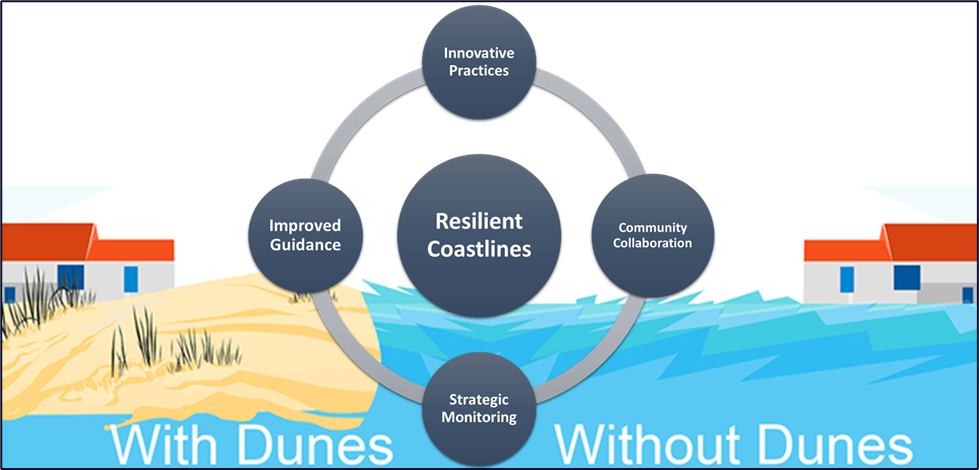A recent article by the US Army Engineer Research and Development Center features EWN research on wrackcycling to build stronger dune systems. “Wrack” is the term for seaweed, driftwood, and other organic materials produced by coastal ecosystems that wash ashore on the beach. EWN Researchers are partnering with the U.S. Army Corps of Engineers (USACE) Mobile District and The University of Southern Mississippi (USM) to study the potential benefits of beach wrack for creating more resilient dune systems. This innovative approach, known as wrack-cycling, involves placing natural materials, such as washed-up seaweed and organic matter, on existing dunes to enhance their stability and resilience against turbulent weather, including hurricanes and tropical storms. This research, spearheaded by EWN researcher Leigh Provost, a research coastal engineer, and takes advantage of the Mobile District’s designation as an EWN Proving Ground. The study aims to provide sustainable solutions that not only protect coastal communities but also reduce the need for future dune restoration projects and beach nourishment.
By strategically using beach wrack, we’re not just managing an economic issue for coastal communities, we’re building a natural defense system against the impact of storms, protecting both people and our valuable shorelines.
Read the full article from the Engineer Research and Development Center, Wrackcycling: Using nature to build stronger dune systems

Related Articles
Wrack placement to augment constructed dunes: A field investigation





